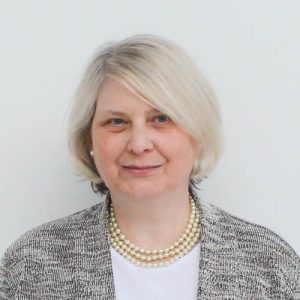Provider dyads tackle medical and psychosocial needs for patients requiring palliative services in the emergency department.
In March 2020 when the pandemic descended on Boston, emergency department staff at Boston Medical Center (BMC) realized that they needed to prepare for a worst-case scenario of a high volume of patients declining quickly within the ED. The hospital’s existing palliative care service team established a working group to identify needs, and then extended a call to the entire hospital staff to provide services in the emergency department.
In a matter of weeks, off-shift doctors, nurses, social workers, and chaplaincy stepped up to fill palliative care shifts on a volunteer basis. Deliberately, medical providers and psychosocial practitioners were paired in dyads to provide a range of services, including conversations about end-of-life planning, goodbye video calls between a patient and their family, and emotional support to families over the phone, in addition to medical care. The new palliative care extender program leverages the skills of social workers and other psychosocial practitioners in new departments to provide the most dignified death possible in the difficult circumstances created by the COVID-19 pandemic.
Although cases and deaths from COVID-19 are declining in Massachusetts, they are still on the rise in other states. Nationwide, families and hospital staff continue to face unthinkable situations. COVID has amplified the challenges of navigating death, especially as hospitals’ infection control precautions make the familiar practices of death nearly impossible. Families and providers are confronted with determining and honoring a patient’s wishes on incredibly short notice and watching patients pass without loved ones by their side. In a crisis situation, families are also often overwhelmed with emotions such as worry, anger, ambivalence, and sometimes complex family dynamics.
Maintaining people’s sense of humanity in these unusual and painful circumstances is a priority, says Karissa Giovannini, LCSW, a clinical social worker for BMC’s emergency pediatric department who worked on the palliative care extender team. When a patient arrives at the emergency department in rapidly deteriorating condition, it’s imperative not only to provide the best medical care to attempt to save the patient’s life, but also to understand and honor the wishes of patients and families regarding treatment should the patient’s condition take a turn for the worse.
“Our overall goal is to be an extra layer of support for patients and families,” says Alexandra Dobie, LICSW, a palliative care social worker alongside Giovannini. Dobie works to elicit a patient and family’s goals and values when engaging families in conversations about difficult decisions, she says, so that she can share the family’s priorities with medical colleagues who can create a medical plan that’s in alignment. “Our medical colleagues are aware of these factors too, but when we engage with patients and families, it allows our colleagues to focus on providing the best medical care possible,” she says. In particular, social workers are well-equipped to take a deep dive into the complexity of a patient and family’s context (such as race, socioeconomic status, and available support network) and how this might impact the experience of death, dying, and serious illness.
As part of these conversations, social workers on the palliative care extender team ask patients and families about what their life was like before they got sick. Making space for families and patients to comment on who they are as a person cannot be underestimated, says Dobie. These conversations about death are difficult, but Giovannini says families and patients have appreciated the opportunity to have them: “It’s bringing to light the importance of having these conversations in American culture in general, where we often shy away from talking about death.”
Burnout among medical and social work staff at hospitals is a very real concern, especially with the demands of recent months. However, the medical-psychosocial provider dyad has been key in maintaining the ability to provide palliative care services throughout a surge of cases, says Giovannini, who also focuses on the good in an emotionally taxing role.
“I find a lot of beauty and meaning in the work that I do — witnessing a family sing songs to a patient, witnessing a mother and daughter share stories about their father,” she says. “Even though the work is so hard and these are very challenging situations, we do make a difference in families’ lives.”
This article is part of a series from the Boston University Center for Innovation in Social Work & Health (CISWH) for BMC’s HealthCity that highlights social workers working in healthcare and public health to address the nonmedical factors that impact health, known as social determinants of health. Know of a healthcare team that’s doing innovative work involving social workers? Contact us — we want to hear your story.
